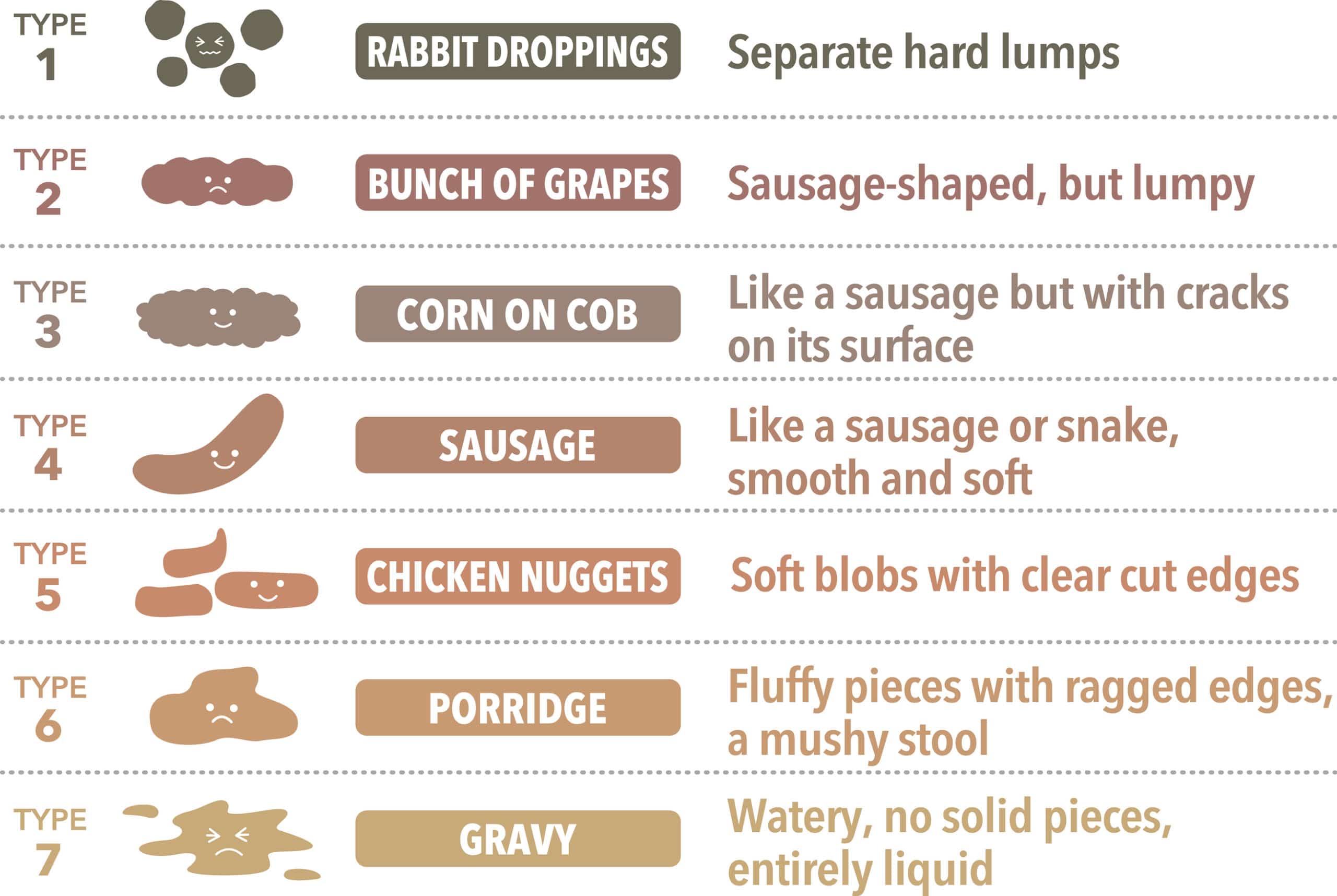Why Do Farts Make Noise? + 5 Ways to Avoid Embarrassment
05
Why do farts make noise when they come out?
(What The Sound Of Your Farts Says About Your Health!)
Click Here For Transcript of "Why do farts make noise when they come out?" Video
Whether you’re 8 or 80, passing a well-timed loud fart can be funny.
But why are some loud and proud, and some are SBD (silent but deadly)?
The sound we all know well is part physiology and part biology, and I know how to help with both.
You see, the intestines contract and move their contents, including gas, via peristalsis.
That’s how it gets through the digestive tract.
Odorous ones are due to the type of bacteria in your gut, and non-smelly ones might just be because of swallowed air.
The trick is to keep your gut healthy.
Click below for the one “stinky” nutrient that I’ve found that keeps me farting “just riiight.”
Be smart about your fart and get control of your volume today.
Until next time, like for good poop, share for great poop.
Farts are a natural bodily function, but when they make noise, they can cause embarrassment and even humor. This sound, amusing as it might be, is simply the result of air escaping your body through a very tight space—between your buttocks! Think of it like the air being forced out of a balloon’s neck, which vibrates to create a sound. This vibration in the fleshy part of our buttocks produces the often-unwanted trumpet.
Why do some farts sound like a jazz solo while others are silent but deadly? Why aren’t all farts silent? Why do you have to worry about fart noises? The volume and sound of a fart depend on several factors: the amount of gas, the speed at which it’s expelled, and the tightness of the sphincter muscles at the time of the fart. The diet also plays a significant role, with certain foods producing more gas and potentially louder outputs.
Embarrassed by your body’s natural symphony? There are ways to reduce the likelihood of noisy occurrences without stifling the need to pass gas, which is important for digestive health. While this introduction won’t dive into the detailed ways to minimize embarrassment (you’ll find those in the upcoming sections), rest assured that they exist and can help maintain comfort and dignity.
Everyone farts, and while it’s often a source of laughter or embarrassment, understanding why and how can demystify the process and reduce the stigma. Remember, a functioning body is nothing to be ashamed of, and there are discreet ways to manage nature’s calls. Stay tuned for the practical tips in the full article!
This exploration encourages sharing because, let’s face it, everyone has been in a potentially embarrassing fart situation. Whether reading for a chuckle or genuinely seeking tips, this topic resonates on a universal level, making it perfect for a lively discussion among friends and family on social media or via email.
Stay tuned for more ways to handle these natural, yet sometimes socially tricky, body behaviors!
Understanding Intestinal Gas: What Causes the Buildup?
Intestinal gas is natural and common, but when it accumulates excessively, it can lead to discomfort and potentially embarrassing situations. Understanding the causes behind gas production can provide insight into managing and reducing its occurrence.
Below are five key contributors to intestinal gas, each explained with a focus on why they happen and how they affect your digestive system.
1. High-Fiber Foods
Foods high in fiber, such as beans, broccoli, and whole grains, are often celebrated for their health benefits, including improved digestion and heart health. However, the body cannot fully digest some of the complex carbohydrates found in these foods.
When these undigested particles reach the large intestine, bacteria break them down, producing gas as a byproduct. While beneficial for digestive health, the increased fiber can lead to an uptick in gas production.
For those seeking to manage their weight, healthcare providers may recommend weight loss drugs for certain individuals as part of a comprehensive plan. These medications can help regulate digestion and complement dietary adjustments, such as increasing fiber intake gradually to reduce gas buildup.
2. Carbonated Beverages
Carbonated beverages introduce carbon dioxide into the stomach, increasing belching and stomach gas. When these drinks are consumed, the gas has only two ways to exit the body: upwards as a burp or downwards through the intestines.
While most of the gas is usually released through burping, some can remain in the digestive tract, contributing to bloating and further gas.
3. Eating Habits
Quick eating or talking while chewing can lead to swallowing more air, which increases the amount of oxygen and nitrogen entering the stomach. This excess air can move along the gastrointestinal tract, increasing gas and bloating. Swallowed air is one of the most common causes of intestinal gas.
To minimize this, it is advised to eat slowly and chew food thoroughly, which not only reduces air intake but also aids in digestion.
4. Dairy Products
For individuals with lactose intolerance, dairy products can significantly trigger intestinal gas. Lactose intolerance results from the body’s inability to break down lactose, a sugar in milk and other dairy products.
When lactose is not adequately digested, it is fermented by bacteria in the colon, producing hydrogen, carbon dioxide, and methane gas, which can lead to bloating and discomfort.
5. Artificial Sweeteners
Artificial sweeteners such as sorbitol and xylitol, found in sugar-free gums and candies, can also contribute to gas and bloating. These sweeteners are not fully absorbed by the body and are fermented by bacteria in the large intestine.
This fermentation process produces gas as a byproduct, leading to gastrointestinal discomfort among sensitive individuals.
Understanding these common causes of gas can help manage diet and lifestyle choices to reduce discomfort. Making informed decisions about what to eat and drink and how to consume these items can significantly impact the amount of gas your body produces.
The Composition of Intestinal Gas: A Closer Look
Intestinal gas, while often a source of humor or discomfort, is a natural byproduct of the digestive process. Understanding its composition can demystify this common bodily function and help manage the factors contributing to its production.
Intestinal gas is primarily made up of odorless vapors. The major components include nitrogen and oxygen, which are swallowed with air during eating or talking. Carbon dioxide is also a significant part of the gas mix, produced either from the body’s metabolic processes or from carbonated drinks.
Methane and hydrogen are produced when undigested food is broken down in the colon by bacteria; not everyone produces methane, as it depends on the specific bacteria present in the individual’s gut.
Interestingly, the occasional foul odor of gas comes from trace gases like hydrogen sulfide, methyl mercaptan, and dimethyl sulfide, which are released during the breakdown of certain foods in the gut. Foods rich in sulfur, such as eggs, meat, and cauliflower, are typical culprits. These trace gases comprise a tiny portion of intestinal gas but can significantly impact its smell.
This blend of gases is why intestinal gas can vary so much in volume and odor between individuals, depending on diet, eating speed, and the composition of bacteria in the digestive tract. By adjusting these factors, we can often manage the amount and type of gas produced.
Why Do Farts Make Noise? Exploring the Audible Aspects of Gas
The noises accompanying the release of intestinal gas, commonly known as farting, can range from a gentle whisper to a boisterous blast. While often a source of embarrassment or laughter, the sounds are simply a result of the mechanics of gas expulsion from the body.
Here are three reasons why farts can be noisy, highlighting the physiological and environmental factors involved.
1. Speed of Expulsion
The speed at which gas exits the body plays a critical role in how noisy a fart can be. When the muscles of the rectum expel gas rapidly, it causes a vibration in the anal sphincter and surrounding tissues, similar to the vibration of a reed in a woodwind instrument. The faster the gas is forced out, the more likely you are to fart louder.
This speed can be influenced by the buildup of gas pressure in the intestines, which varies depending on digestive processes.
2. Tightness of the Sphincter Muscles
The tightness of the anal sphincter muscles at the time of gas release also determines the sound of a fart. A tighter sphincter causes a higher-pitched fart, much like tightening a drum skin raises the pitch of the drum.
This tightness can vary with voluntary control, muscle tone, and momentary tension, which is why the sound of a fart can differ so much from one occasion to the next.
3. Volume and Composition of the Gas
The amount and makeup of the gas itself influence the sound of a fart. A larger volume of gas needs to be expelled faster, which can result in a louder noise. Additionally, the composition of the gas, influenced by what has been eaten, how much air has been swallowed, and the gut’s bacterial makeup, can affect how smoothly or forcefully the gas exits. Methane-rich gas, for example, can exit more explosively than gas composed primarily of carbon dioxide.
Understanding these factors helps demystify why farts can sometimes be noisy and provides insights into how bodily functions, while natural, can vary widely in their manifestations.
This knowledge can also offer a degree of control over such situations, aiding in managing both the occurrence and the social implications of farting.
5 Lifestyle Tips to Avoid the Embarrassment of Loud Farts
While the occurrence of flatulence is a natural part of human digestion, loud farts can be socially awkward and embarrassing. Although diet and physical activity significantly influence the production and release of intestinal gas, there are several lifestyle adjustments, excluding diet and exercise, that can help manage the volume and frequency of these events.
Here are five practical lifestyle tips to help minimize the embarrassment associated with loud farts.
1. Wear Looser Clothing
Tight clothing can constrict the abdomen and increase the pressure needed to expel gas, which might result in louder farts. Wearing looser clothing, especially around the waist, allows gas to exit more gently without building excessive pressure. This can reduce the sound of the release, making any farts less noticeable.
For certain individuals experiencing excessive gas as part of a weight management journey, weight loss drugs may provide additional support by addressing underlying metabolic or digestive concerns. Consult a healthcare provider to learn more about options tailored to your needs
2. Choose the Right Time
Timing can be everything when it comes to managing flatulence discreetly. If feeling the urge to pass gas, opting to excuse yourself to a more private setting, such as a restroom or unoccupied space, can prevent potential embarrassment. This practice not only helps with managing noise but also maintains comfort and dignity in social situations.
3. Adjust Your Sitting Position
Changing your sitting position can influence how quietly gas is expelled. Leaning to one side slightly can help relax the anal sphincter, allowing gas to escape more quietly rather than forcing it out through a tight space. This method can be particularly useful during long meetings or when leaving the room frequently isn’t an option.
4. Use Bathroom Fans or Sound Devices
When using public or shared restrooms, turning on a bathroom fan or using a sound device can mask the noise associated with farting. This can provide a sense of security and privacy, making it easier to manage gas without concern for noise. These simple tools can be a discreet help in managing bodily functions in shared environments.
5. Practice Controlled Release Techniques
Learning to control the release of gas can significantly reduce sound. Practicing the gentle release of gas when alone can help you gain better control over your sphincter muscles, allowing for quieter release when in public. This technique involves releasing gas slowly rather than all at once, which can significantly decrease the noise level.
Incorporating these lifestyle tips can provide practical solutions to manage and minimize the embarrassment often associated with loud farts. While natural and usually unavoidable, taking these steps can help handle flatulence more discreetly, preserving personal comfort and social decorum.
FAQs on Lower Colon Health: Understanding Your Digestive Wellness
Maintaining the health of the lower colon is vital for overall digestive wellness and can influence everything from nutrient absorption to waste elimination. Here are five frequently asked questions about lower colon health, providing insights into best practices for caring for and preventing common issues.
1. What are the signs of an unhealthy lower colon?
Signs that might indicate issues with the lower colon include irregular bowel movements, such as constipation or diarrhea, persistent abdominal pain, bloating, and blood in the stool. Unexplained weight loss and a change in the color and consistency of stools can also signal problems. If these symptoms persist, it is advisable to consult a healthcare provider to rule out conditions like inflammatory bowel disease, irritable bowel syndrome, or even colorectal cancer.
2. How can I naturally maintain a healthy lower colon?
Maintaining a healthy lower colon largely revolves around lifestyle choices. Drinking plenty of water daily helps keep stools soft and easier to pass, reducing the strain on the lower colon. Regular physical activity also encourages good bowel movements. Including fiber-rich foods in your diet, like vegetables, fruits, and legumes, can promote healthy digestion and prevent common issues like constipation and diverticulosis.
In addition to natural methods, compatible individuals managing obesity or related conditions may consider weight loss drugs under medical supervision. These medications can support overall gut health by improving digestion and facilitating more regular bowel movements.
3. Are there specific foods that should be avoided to protect lower colon health?
While a balanced diet benefits the lower colon, there are some foods that might exacerbate problems if you have specific conditions affecting the lower colon. For example, individuals with irritable bowel syndrome (IBS) or inflammatory bowel disease (IBD) may find that spicy foods, caffeine, and alcohol can trigger symptoms. Processed foods high in fat and sugar can also contribute to discomfort and should be consumed in moderation.
4. What role does the lower colon play in the digestive system?
The lower colon, comprising the descending and sigmoid colons, plays a crucial role in the digestive system by absorbing water and salts from solid waste before they are eliminated from the body. This process helps solidify the stool. The lower colon also houses a significant amount of gut flora that aids digestion and supports immune function, highlighting its importance in digestive health and overall well-being.
5. How often should I undergo screening for colon health?
Screening for colon health is essential, especially as you age. Generally, it is recommended that individuals start routine screening for colorectal cancer at age 45 if they are at average risk. This may include procedures like colonoscopies, which allow doctors to inspect the colon’s interior for polyps and other abnormalities. Depending on family history and personal health, your doctor might recommend starting screenings earlier or conducting them more frequently.
These FAQs aim to enhance awareness about lower colon health and the factors that influence it. By understanding and addressing the needs of your lower colon, you can significantly improve your digestive health and quality of life.
Conclusion: Embrace and Share the Sounds of Nature
Understanding why farts make noise and exploring ways to manage them discreetly offers both relief and amusement. From the speed of gas release to the tightness of sphincter muscles, the sounds of flatulence are a natural and universal human experience. By adopting simple lifestyle tips, such as wearing looser clothing and practicing controlled release techniques, you can confidently navigate potentially embarrassing situations. Feel free to share these insights with friends and family across all social media platforms and through email. Let’s normalize and discuss these natural occurrences openly, fostering both laughter and learning in our conversations.
Take Viscera-3
We should have probably listed this one first. You can help fix so many of your digestive and bathroom issues, such as gas and bloating, and improve your overall health with this patented molecule that is backed by Ivy League Doctors by clicking here! What do you have to lose except for many of those frequent and noisy farts?!!!
Types of poop one encounters is categorized by the Bristol Stool Chart. This chart is a generalized indicator of how or why different types of poops look and feel a certain way. The 7 types of poop are broken up into categories based on a 2,000-person study!

Does your poo look this good? If you have Bristol Type 3 or 4 – your poop is considered “normal”! Bristol Type 1 or 2, is where the poop is hard and difficult to pass, are indicative of constipation. Often, these types of stool can be painful to pass – but don’t worry – Doctor Poo has a recommended healthy-gut switch solution…just keep reading!
Should you ever worry about your poop?
Always consult your healthcare provider if you have any concerns about what your poop means. People are asked to call their health care providers if: They experience severe levels of abdominal pain or discomfort with diarrhea that does not go away when you poop or fart. Also, if diarrhea is accompanied by fever of 101 degrees Fahrenheit or higher, chills, vomiting, or fainting, call your physician immediately.
What is an unhealthy poop?
An unhealthy poop is when one poops too often (hence, your doctor asking you if you poop more than three times daily) or not pooping often enough (As such, less than three times a week) and also excessive straining when pooping. Poop that is colored red, black, green, yellow, or white. greasy, or fatty stools is unhealthy.
Help fix so many of your digestive and bathroom issues, such as gas and bloating and improve your overall health with this patented molecule that is backed by Harvard Doctor’s by clicking here!
Doctor Poo Provides More Valuable Answers for Those Hard to Ask Questions Below:












